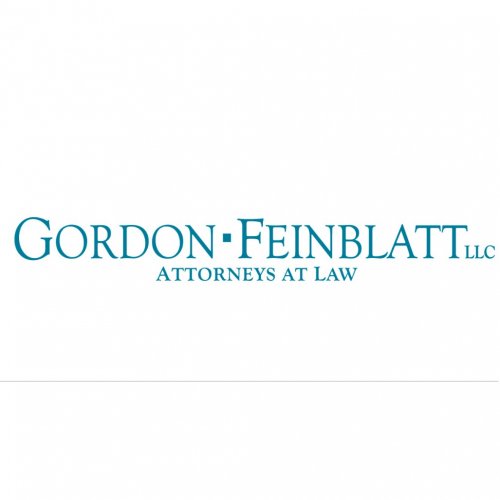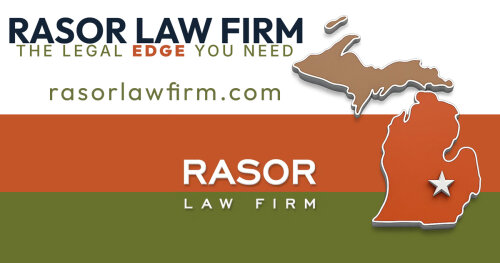Best Bankruptcy & Debt Lawyers in Maryland
Share your needs with us, get contacted by law firms.
Free. Takes 2 min.
Or refine your search by selecting a city:
List of the best lawyers in Maryland, United States
United States Bankruptcy & Debt Legal Articles
Browse our 2 legal articles about Bankruptcy & Debt in United States written by expert lawyers.
- Filing Chapter 7 in 2026 United States: New Income Limits
- Chapter 7 gives a near-total discharge of most unsecured debt, but you must pass a "means test" that compares your household income to your state's median income for your family size in 2026. The U.S. Trustee Program updates the state median income numbers at least once a year; you qualify... Read more →
- Debt Collectors in the US: Stop Harassment and Verify Debt
- You have strong federal rights under the Fair Debt Collection Practices Act (FDCPA) and CFPB Regulation F. Collectors cannot harass you, must send a validation notice, and must stop collecting until they verify if you dispute in writing within 30 days. Tell collectors to stop contacting you, then follow up... Read more →
About Bankruptcy & Debt Law in Maryland, United States
Bankruptcy and debt law in Maryland is designed to help individuals and businesses manage or eliminate overwhelming debt, offering a fresh financial start. Bankruptcy is a court-managed process that can involve liquidating assets to pay back creditors, organizing payment plans, or discharging certain debts entirely. In Maryland, both federal bankruptcy laws and state-specific regulations work together to provide various options for debt relief, such as Chapter 7, Chapter 13, and, for businesses, Chapter 11 bankruptcies. Alternatives to bankruptcy, like debt settlement or consolidation, may also be available depending on one's circumstances.
Why You May Need a Lawyer
Navigating bankruptcy and debt-related matters can be complex and stressful. Many people seek legal advice for:
- Filing for bankruptcy protection under Chapter 7, Chapter 13, or Chapter 11
- Stopping foreclosure, repossession, or wage garnishment
- Responding to creditor lawsuits or collection efforts
- Negotiating debt settlements or repayment plans
- Understanding which of your assets are protected under Maryland exemptions
- Dealing with aggressive creditors or debt collectors
- Sorting through complicated financial records and requirements
Local Laws Overview
In Maryland, bankruptcy procedures mostly follow federal law, but important state-specific factors apply:
- Exemptions: Maryland residents must use state exemptions, not the federal exemption system, to protect certain property in bankruptcy such as a primary residence, tools of the trade, and personal property within prescribed limits.
- Means Test: Individuals seeking Chapter 7 bankruptcy must pass a means test based on household income compared to Maryland's median income.
- Homestead Exemption: While Maryland's homestead exemption is lower than some states, it may allow you to protect a portion of your home's value.
- Wage Garnishment: Maryland law limits the amount creditors can garnish from your wages, providing some protection to debtors.
- Statute of Limitations: Maryland sets limits on how long a creditor can sue for a debt, typically three years for written contracts and open accounts, and 12 years for judgments.
- Mandatory Credit Counseling: Before filing for bankruptcy, Maryland residents must complete credit counseling from an approved agency.
Frequently Asked Questions
What types of bankruptcy are available in Maryland?
The most common types are Chapter 7 (liquidation), Chapter 13 (reorganization for individuals with regular income), and Chapter 11 (primarily used by businesses or individuals with significant debt).
Will bankruptcy eliminate all my debts?
No. Most unsecured debts such as credit cards and medical bills may be discharged, but certain debts such as child support, alimony, many taxes, and student loans are generally not dischargeable.
Can I keep my home or car if I file for bankruptcy?
You may be able to keep your home or car depending on the type of bankruptcy filed and the available Maryland exemptions. However, you must continue to make payments on secured debts if you wish to keep the property.
How does filing for bankruptcy affect my credit?
Bankruptcy is a negative mark on your credit report and can remain for up to 10 years for Chapter 7 and up to 7 years for Chapter 13. However, many people are able to rebuild their credit over time.
What property can I exempt in Maryland?
Maryland allows exemptions for certain property, such as a limited amount of equity in your primary residence, retirement accounts, wages, and personal property. The specifics depend on current exemption amounts, which may change periodically.
What is the means test?
The means test determines if your income is low enough for Chapter 7 bankruptcy. It compares your household income to Maryland's median income for a household of your size. If you exceed the limit, you may have to file under Chapter 13.
Can creditors still contact me after I file for bankruptcy?
Once you file, an automatic stay goes into effect that stops most collection actions, including phone calls, lawsuits, wage garnishments, and foreclosures.
Will I need to go to court?
In most cases, you will need to attend a meeting of creditors, also known as a 341 meeting. You may need to appear at additional hearings if complications arise.
Are there alternatives to bankruptcy?
Yes. Alternatives include debt consolidation, debt settlement, negotiating directly with creditors, or enrolling in a credit counseling program.
How do I find a reputable bankruptcy attorney in Maryland?
Look for attorneys who specialize in bankruptcy law, are licensed in Maryland, and have experience with cases similar to yours. Consultation with local bar associations or legal aid organizations can also help.
Additional Resources
For more information or assistance, consider these resources:
- United States Bankruptcy Court for the District of Maryland: Offers forms, instructions, and information relevant to filing bankruptcy in Maryland.
- Maryland Judiciary Self-Help Centers: Provides free legal help with civil matters, including debt collection and bankruptcy issues.
- Maryland Volunteer Lawyers Service (MVLS): Connects income-eligible Marylanders with volunteer attorneys for bankruptcy and debt relief cases.
- National Foundation for Credit Counseling: Offers credit counseling services including advice on debt management and bankruptcy alternatives.
- Consumer Protection Division of the Maryland Attorney General: Assists with complaints about debt collectors and creditor harassment.
Next Steps
If you are struggling with debt or considering bankruptcy in Maryland, begin by gathering your financial records and understanding your full debt situation. Consider speaking with a certified credit counselor to explore all your options. If bankruptcy seems like the best route or if creditors are suing or harassing you, consult with a qualified bankruptcy attorney who can guide you through your specific circumstances and ensure you understand your rights and responsibilities under Maryland law.
You can also contact Maryland's local legal aid resources for free or low-cost assistance if you are unable to afford an attorney. Make sure to act promptly, as waiting too long may limit your options or put your assets at risk.
Lawzana helps you find the best lawyers and law firms in Maryland through a curated and pre-screened list of qualified legal professionals. Our platform offers rankings and detailed profiles of attorneys and law firms, allowing you to compare based on practice areas, including Bankruptcy & Debt, experience, and client feedback.
Each profile includes a description of the firm's areas of practice, client reviews, team members and partners, year of establishment, spoken languages, office locations, contact information, social media presence, and any published articles or resources. Most firms on our platform speak English and are experienced in both local and international legal matters.
Get a quote from top-rated law firms in Maryland, United States — quickly, securely, and without unnecessary hassle.
Disclaimer:
The information provided on this page is for general informational purposes only and does not constitute legal advice. While we strive to ensure the accuracy and relevance of the content, legal information may change over time, and interpretations of the law can vary. You should always consult with a qualified legal professional for advice specific to your situation.
We disclaim all liability for actions taken or not taken based on the content of this page. If you believe any information is incorrect or outdated, please contact us, and we will review and update it where appropriate.
Browse bankruptcy & debt law firms by service in Maryland, United States
Maryland, United States Attorneys in related practice areas.
Browse bankruptcy & debt law firms by city in Maryland
Refine your search by selecting a city.











